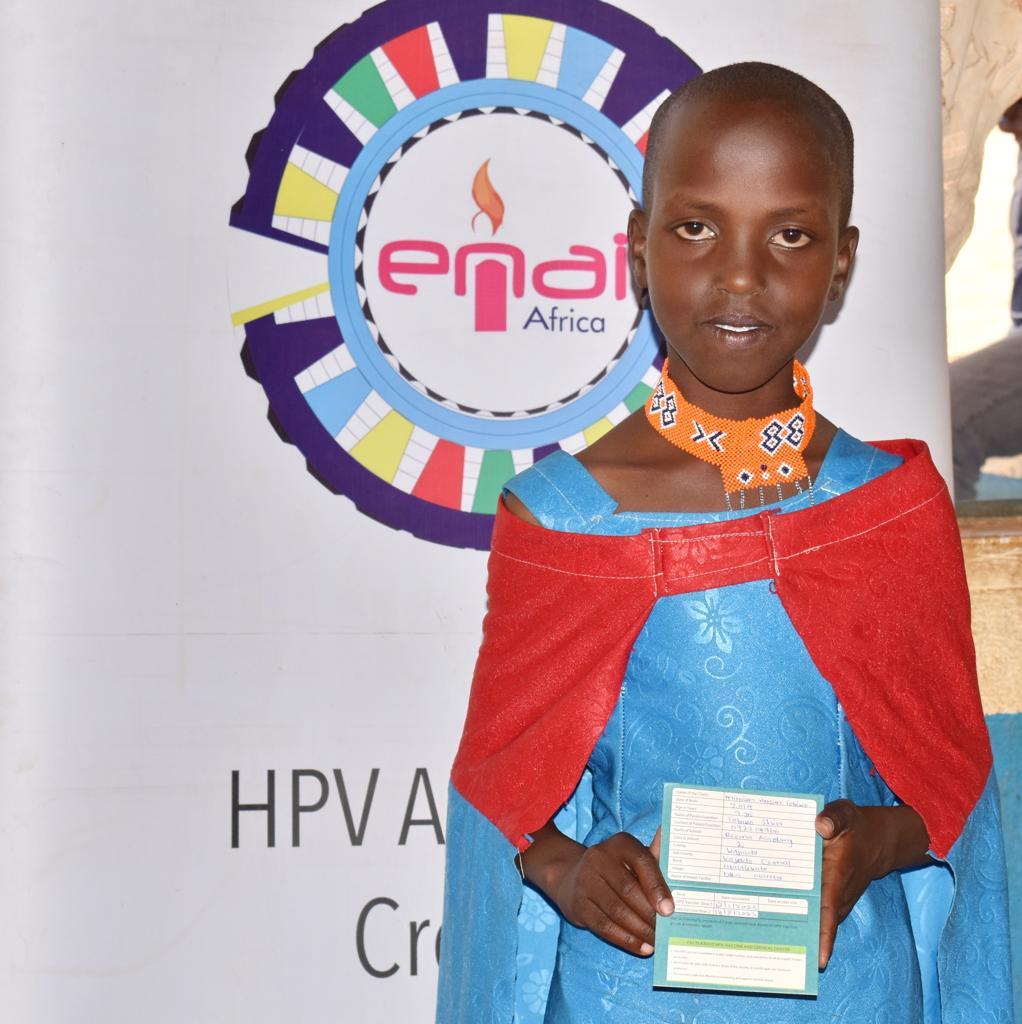Kenya has a population of 13.45 million women ages 15 years and older who are at risk of developing cervical cancer. Current estimates indicate that every year 5250 women are diagnosed with cervical cancer and 3286 die from the disease. Cervical cancer ranks as the 2nd most frequent cancer among women in Kenya and the 1st most frequent cancer among women between 15 and 44 years of age. About 9.1% of women in the general population are estimated to harbour cervical HPV-16/18 infection at a given time, and 63.1% of invasive cervical cancers are attributed to HPVs 16 or 18.
The HPV vaccine protects against certain cancers caused by human papillomavirus (HPV) infection. HPV infection can cause cancer of the cervix, vagina, vulva, penis, anus and throat. It can also cause genital warts. HPV is a common virus that is spread through skin-to-skin or sexual contact. The HPV vaccine is recommended for people ages 9 to 26. The current recommendations for getting the HPV vaccine are:
Children and adults ages 9 to 26 years: The HPV vaccination works best when given between the ages of 9 and 12 years old. Getting vaccinated at a young age provides the best protection against HPV cancers. HPV vaccination is recommended for all children and adults through 26 years old who have not been fully vaccinated.
Adults ages 27 to 45 years: The vaccine is less beneficial to people in this age range because more people have already been exposed to the virus. In some cases, your healthcare provider may recommend getting the vaccine as an adult.
The HPV vaccine protects people from a common sexually transmitted virus called HPV or human papilloma virus. There are about 40 types of HPV that can spread through sexual contact. It’s so common that 80% of sexually active people will have HPV at some point in their lives. Most infected individuals will never know they have it because it doesn’t cause any symptoms. Some HPV infections can progress to cancer later in life.
People should not get the HPV vaccine if they:
• Are pregnant.
• Have had severe reactions to any ingredients in the vaccine or to a previous dose of the HPV vaccine
• Anyone getting the vaccine prior to age 15 needs two doses of the HPV vaccine to be fully protected. They should be given six to twelve months apart.
In a study conducted in (2014) by Deborah Watson-Jones and others in Kajiado County on Access and Attitudes to HPV Vaccination amongst Hard-To-Reach Populations in Kenya. A situation assessment was conducted to assess community services in Maasai nomadic pastoralist communities in Kajiado County. These covered marriage, knowledge of cervical cancer and HPV, factors that might inhibit or support HPV vaccine uptake and intention to accept HPV vaccine if a programme was in place. The study found out that school absenteeism and drop-out, early age of sex and marriage, lack of parental support, population mobility and distance from services, post-female genital mutilation (FGM), Inadequate information about HPV vaccine, high illiteracy rates, community perceptions among others acted as an impediment in the uptake of the service. Understanding the HPV‐attributable cancer burden can boost programs of HPV vaccination and HPV‐based cervical screening. “Scaling up access to quality health services, particularly for women and girls, is a critical part of Kenya’s Big Four Action Plan,” said Sicily Kariuki. “Cervical cancer is the leading cause of female cancer deaths in Kenya.

